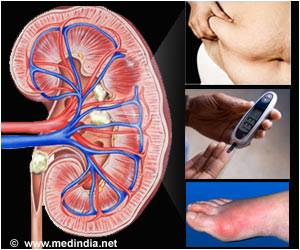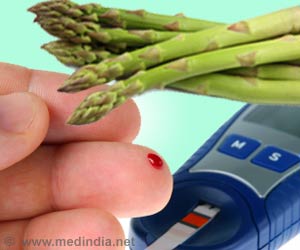Diabetic patients are at increased risk of death after a
heart attack, suggests recent study. The reason why the risk of death is almost
doubled in these patients remains unclear.
Diabetes is one of the
leading causes of deaths across the world. It
is a disease characterized by the presence of excess sugar in urine as well as
blood. In 17th century the disease was referred as "pissing evil". Besides
heart attack, diabetes is the fastest growing disease affecting millions of
people across the world.
A study conducted at
the University of Iowa suggests that the over-activation of an important heart
enzyme causes the death of pacemaker cells of the heart and results in abnormal
heart rhythm and raised chances of sudden death in diabetic mice.
Mark Anderson, M.D.,
Ph.D., UI professor, chair, and department executive officer of internal
medicine, and the senior author of the study published in the Journal of
Clinical Investigation, stated, "Many studies have shown that patients
with diabetes are at especially high risk for dying from a myocardial
infarction (heart attack). Our study provides new evidence that this excess mortality
could involve a pathway where oxidized CaMKII enzyme plays a central
role."
More than 8 percent of
the people of the United States are affected by diabetes. Reactive oxidative
stress (ROS) level is raised by diabetes and results in cellular damage.
Anderson’s lab in 2008
revealed that oxidation showed CaMKII (calcium/calmodulin-dependent protein
kinase II).
CaMKII or
Ca2+/calmodulin-dependent protein kinases II or CaM kinases II are
serine/threonine-specific protein kinases which are regulated by the Ca2+/calmodulin
complex.
Min Luo, D.O., Ph.D., a cardiology fellow in the UI Department of Internal Medicine and the lead author, said, "Our findings suggest that oxidized CaMKII may be a 'diabetic factor' that is responsible for the increased risk of death among patients with diabetes following a heart attack."
The scientists noted a decrease in heart rates in diabetic mice and like human beings, the mice doubled the risk of death occurring after a heart attack.
The facts from the diabetic mice suggested that the deaths occurring as a result of heart attack were due to abnormalities in heart rhythm. This encouraged the researchers to investigate the pacemaker cells controlling the heart rate.
The experts discovered high levels of oxidized CaMKII enzyme in the pacemaker cells of the heart.
When experts inhibited oxidation-based activation of the enzyme less pacemaker cells died and normal heart rates were noted in diabetic mice.
The study suggested that by reducing the activation of the CaMKII enzyme in specific heart cells can lower the risk of death occurring in heart patients with diabetes.
The research was financially supported by grant from the National Heart, Lung and Blood Institute and from the Fondation Leducq.
Source-Medindia















